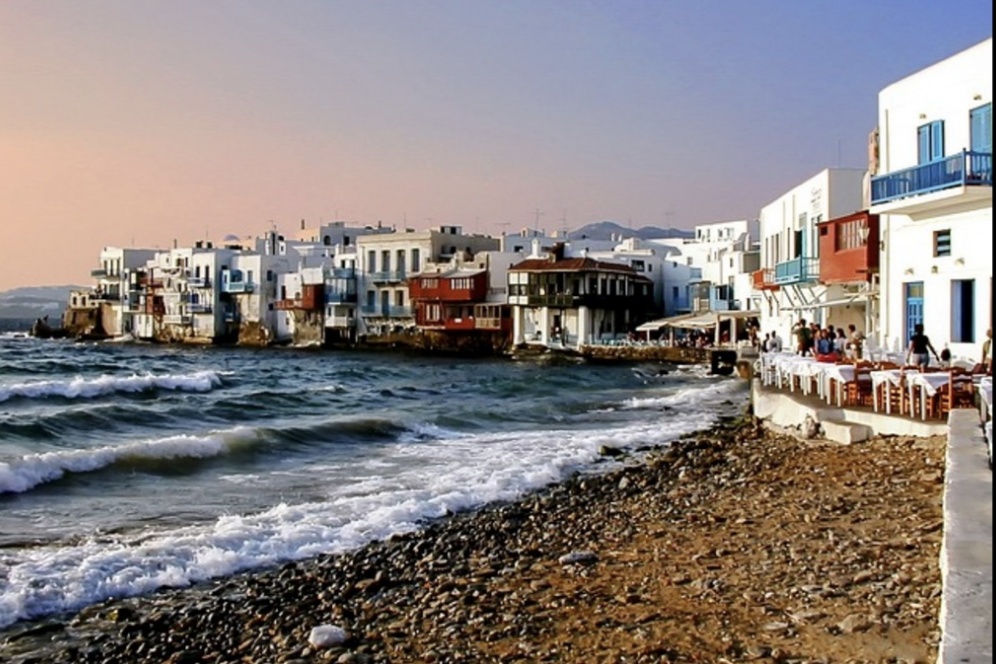GREECE: Archaeologist Manolis Psarros was attacked earlier this month while making his way to his car on a dark side street in Athens. The state employee’s office was located in a neoclassical culture ministry building beneath the Acropolis, and it was 8.30 p.m., later than usual for him to get home.
Psarros, who is in charge of the Cycladic isle, explained that he needed to finish his papers on Mykonos because there would be a general strike the following day. He admitted to the Observer, “I remember approaching the automobile, but it’s a blur after that. “All I know is that I took a blow to the back of my head so hard that I lost consciousness.”
On March 8, the soft-spoken Greek emerged from a hospital bed with fractured ribs, a broken nose, and eyes so badly bruised that his vision is still compromised.
Psarros had plainly been kicked and punched in an assault that showed all the telltale signs of a professional hit, according to the medics who examined the wounds. The 52-year-old was lucky to still be alive.
The focus of the probe has firmly shifted to Europe’s most well-known party island, Mykonos, where a building frenzy has put the archaeological agency responsible for preserving the island’s rich cultural history at odds with developers.
Psarros has served as the division’s director for the previous ten years, overseeing the issuance of building permits for the Aegean hotspot.
The Association of Greek Archaeologists’ president, Despoina Koutsoumba, claims that “everything about this incident is indicative of how out-of-control the situation in Mykonos has become.”
The centre-right Greek administration seems to concur. It was agreed last week by the prime minister, Kyriakos Mitsotakis, as well as law enforcement and municipal officials that the anarchy driving the illegal building on one of Greece’s most well-known tourist spots was caused by an unsolved crime.
Mykonos has long been a leader in the world as a playground for the wealthy, with bars, restaurants, and beaches that regularly generate enormous profits.
The ferocious assault on Psarros, however, also revealed a more sinister side: that of an island that has been taken over by interests that now regard the rocky outcrop as being outside the purview of both the central government and the long arm of the law.
Officials were openly referring to Mykonos as a “state within a state” on Wednesday as Mitsotakis called a meeting of senior cabinet members to assess the situation. The Greek prime minister acknowledged these worries and stated that steps to maintain public order would be implemented.
In the upcoming days, the first of 100 additional security professionals, including police officers, financial crime detectives, and construction and environmental inspectors, is anticipated to arrive by plane.
In Mykonos and neighbouring islands in the Aegean archipelago, there will be a stricter crackdown on unauthorizing buildings in rural areas.
It is a delicate balancing act to guarantee that the natural beauty that draws tourists to the country is preserved while simultaneously recognising the necessity for tourism, which accounts for 25% of GDP and is by far the largest engine of the Greek economy.
The tourism industry’s spectacular post-pandemic recovery did not assist. Investors care little about the difficulties archaeologists face through a notoriously cumbersome bureaucracy because Greece is expected to have another record-breaking season of tourism; last year, it was the third most visited destination on the planet.
Locals bemoan the chaotic growth of an island that has rendered many unable to enjoy or afford it and claim that fines imposed on offenders for erecting homes, hotels, and beach bars close to or on historic sites “are nothing” in comparison to the profits to be made.
Investors from the Middle East have recently moved in, revealing contentious plans to build a tourist enclave with a port big enough to anchor superyachts, as Mykonos has soared into its own stratosphere.
Psarros also desires to resume his job as soon as he is well enough, “because to do otherwise, or if I were to be removed from the post, would send the incorrect message to my attackers.”
Time is of the essence, according to Koutsoumba, as a female colleague on Mykonos was also the target of threatening text messages last week.
The head of the archaeological association, who will take part in a protest vigil Tuesday outside Koukas’s town hall office, said, “If the administration means what it says, it will have to start removing unlawful constructions.”
“Mykonos is it right now, but another island will take its place eventually.” The time has arrived for action, which entails sending in bulldozers. Everyone will only be able to understand it. It’s imperative to set an example right away.
Also Read: United States: Tornado Hits Mississippi Region Injuring Dozens



